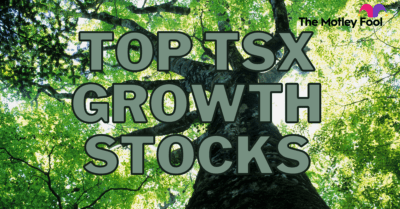Shares of Restaurant Brands International Inc (TSX:QSR)(NYSE:QSR) are trading at $99.89 per share which is 46% above its 52-week low of $68.34. The stock has gained 43% year to date and has returned an impressive 145% in the last five years. So why would you want to sell a stock that has outperformed the market?
For one thing, RBI is incredibly overvalued. The stock is trading at a forward price to earnings multiple of 33. Compare this to its expected earnings per share growth (or EPS) of 3.8% in 2019 and 9.5% in 2020, and we can see that RBI shares are grossly overvalued. Its EPS is estimated to rise at a compound annual growth rate of 6% in the next five years.
Comparatively, when RBI shares were in an upward spiral in the last five years, the company’s EPS rose at an annual rate of 29% between 2014 and 2018. Even if you consider RBI’s dividend yield of 2.7%, the stock is still trading at a considerable premium.
Second, its revenue growth is decelerating. RBI sales rose 10.4% in 2017 and 17% in 2018. Analysts expect sales to rise by just 4.9% in 2019. Although revenue growth might improve to 5.5% in 2020, it still lower than the recent historical growth.
Will international expansion spur long-term sales?
RBI owns several well-known fast food and restaurant outlets, including Burger King, Popeyes, and Tim Hortons. These three brands have a total of 26,000 outlets and are a primary driver of sales.
Burger King leads the store count and accounts for close to 67% of outlets. RBI is now expanding Tim Hortons in major international markets. It has looked to gain a footprint in the United Kingdom, Spain, Mexico, and the Philippines over the last two years.
Now the company is looking to open 1,500 Popeyes stores in China in the next 10 years. While opening a large number of stores will result in substantial incremental revenue, the primary metric for sustainable growth is same-store sales.
While Popeyes and Burger King have both experienced same-store sales growth, Tim Hortons has been struggling to expand store revenue up until 2018. In the last earnings call, RBI CEO Jose Cil stated:
“Our systemwide sales growth was led by Burger King at nearly 10%, Tim Hortons at just over 1.5% and Popeyes at nearly 9%. Our results in the quarter were highlighted by strong global same-store sales results at Burger King and Popeyes, improved same-store sales momentum at Tim Hortons and continued restaurant expansion around the world.”
Will global expansion put pressure on profit margins?
For RBI shares to trade at a reasonable valuation, the company needs to improve the bottom line by at least 25% to 30% on an annual basis. But will aggressive international expansion negatively impact the company’s bottom line or will it be able to bank on low cost developing countries for robust margin growth?
In the second quarter, RBI managed to improve adjusted EBITDA by just 3.5% on an organic basis, which is far lower compared to its forward multiple.
Bottom line
Why would investors want to pay a hefty premium for a company that’s growing by low single digits?









